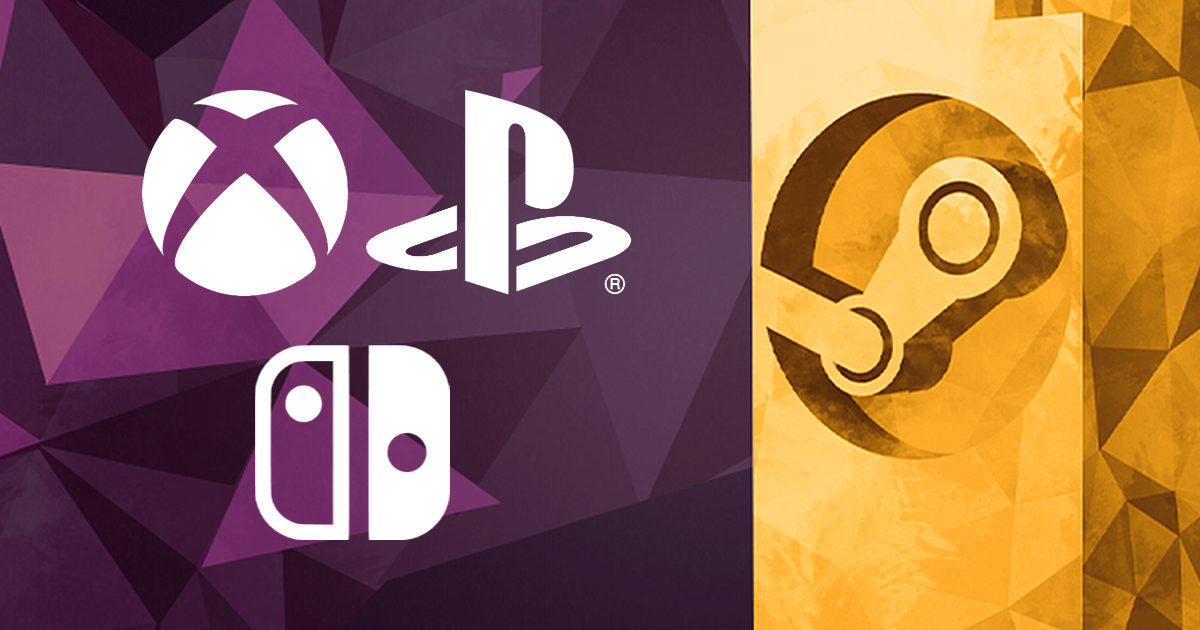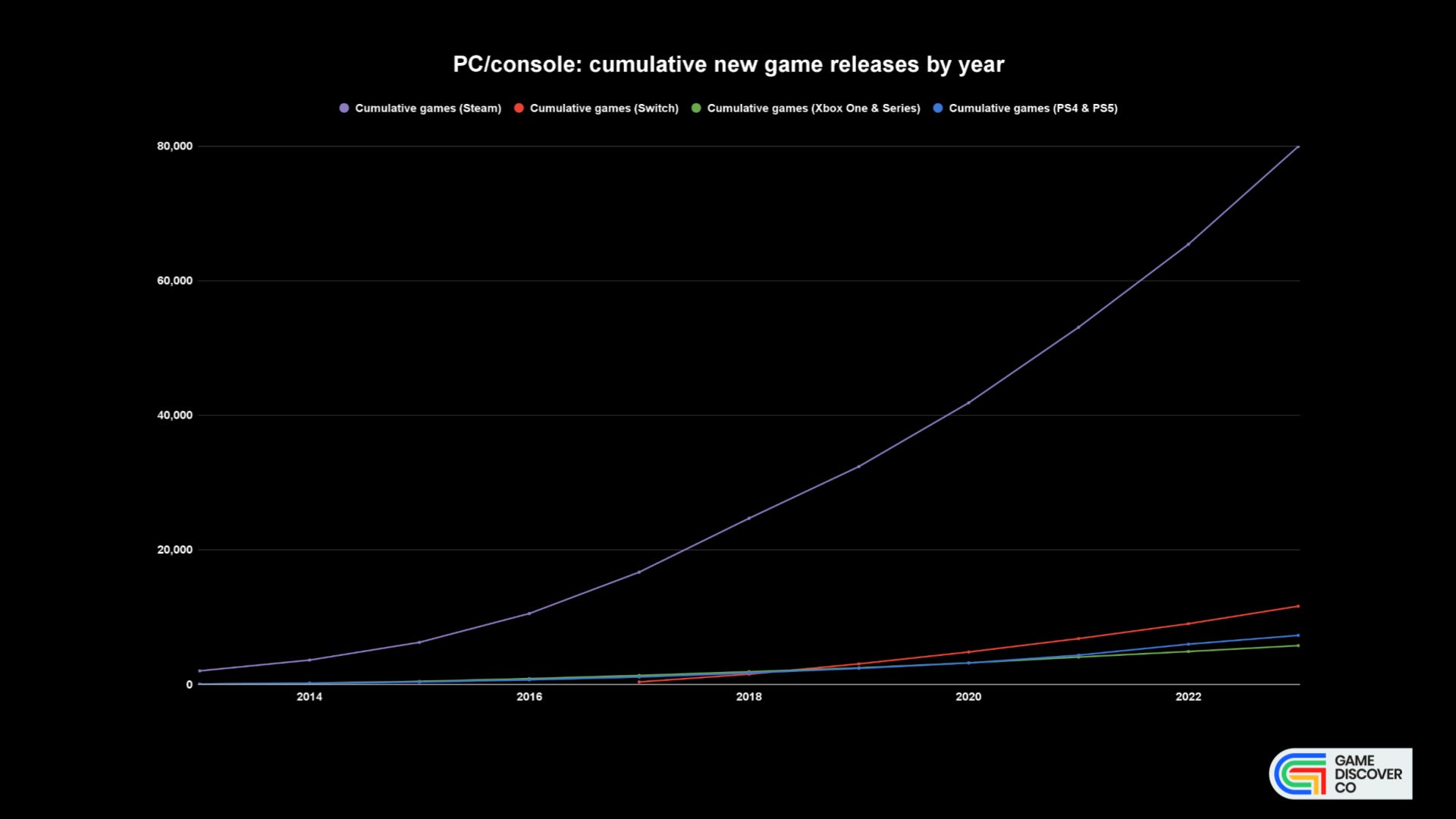It is no secret that Steam is flooded with tens of thousands of games. But here is how its catalog size compared to consoles and how the number of games on each platform changed over time.

Last month, we reported that over 14k new games were released on Steam in 2023 (the article is also full of various numbers such as the most played titles, concurrent users, and the best/worst-reviewed releases).
GameDiscoverCo went even further and collected a bunch of data on the size of the PlayStation, Xbox, and Nintendo Switch catalogs. Below are the main takeaways we wanted to highlight:
- 2,608 new games were added to Nintendo Switch’s catalog last year, followed by PlayStation 4/5 (1,335) and Xbox One/Series X|S (945);
- A total of 4,888 new titles were released across all three consoles in 2023 — compared to 14,535 new games on Steam (a 2.97x difference!);
- Switch leads the consoles in new releases due to its lower barrier to entry, making it a more attractive platform for smaller studios and indie developers (the situation has changed since 2018, with Simon Carless saying that discounts can now be the “sole/primary discovery driver” due to increased competition);
- PlayStation was the only platform that saw a year-over-year decrease in the number of new releases — from 1,639 in 2022 to 1,335 in 2023 (GameDiscoverCo attributes this to Sony’s fight against trophy shovelware and spam games);
- Xbox might be a good platform for indie titles (even outside of Game Pass) with sales ranging from less than 5k to 15k units, but PlayStation still “absolutely outsells Xbox handily, especially for franchises with international reach like Resident Evil”;
- Right now, Steam’s catalog includes 79,919 games — well above all other major PC and console platforms combined;
- For comparison, Nintendo Switch has a total of 11,600 titles, followed by PlayStation 4/5 (7,288) and Xbox One/Series X|S (5,808);

- Keep in mind that Steam has the lowest barrier to entry, so it is flooded with thousands of hobbyist projects and games that get little to no visibility/sales;
- Overcrowding makes new titles compete with older (and already much more successful) games, which can often be 50-75% off (read more about the supply/demand issue on Steam);
- As a result, an average publisher has to rely on its back catalog, and while its overall earnings are increasing every year, revenue per title is going down;
- The huge difference in catalog size is largely a result of the console ecosystem’s nature — most of the time, consoles lacked backwards compatibility, forcing people to buy games again for new devices (luckily, the problem is almost a thing of the past now);
- As Carless concluded, “Will there still be lots of profitable and big hit games every year? Absolutely. But the ‘no-reset’ console/PC generation shifts the kind of full-priced games that players want to pick up.”
